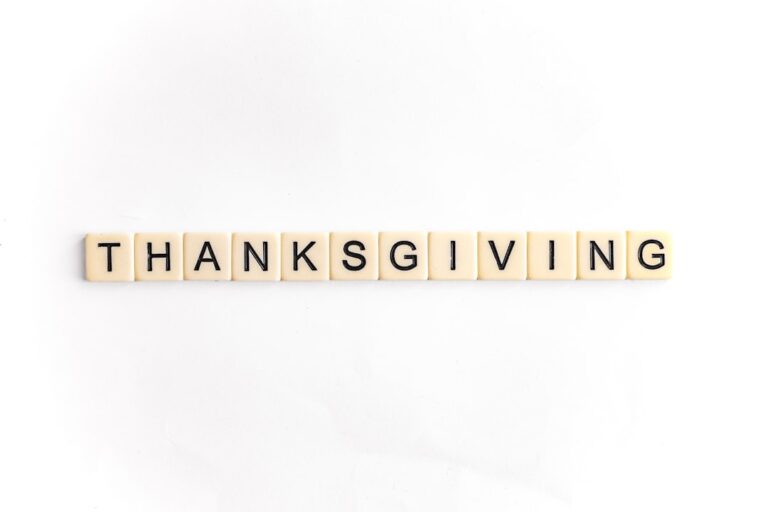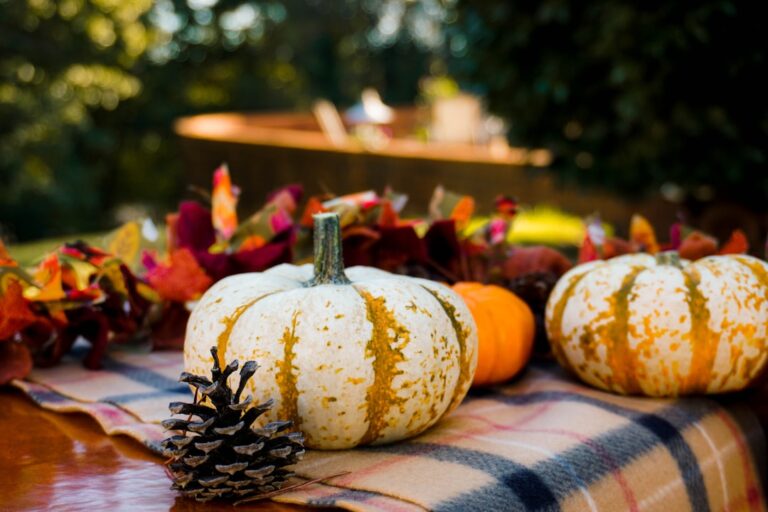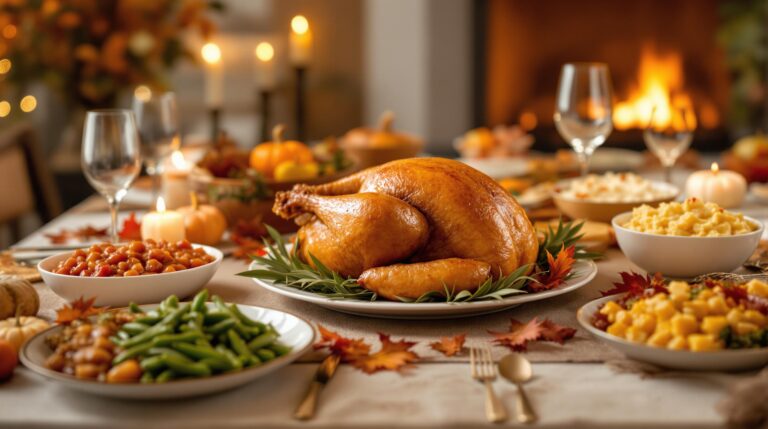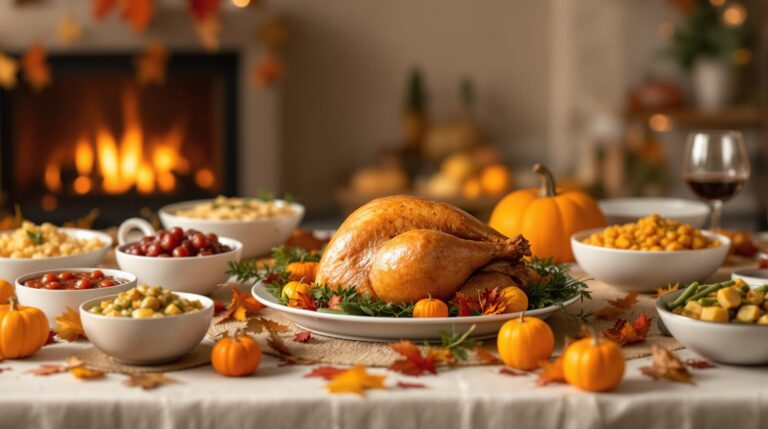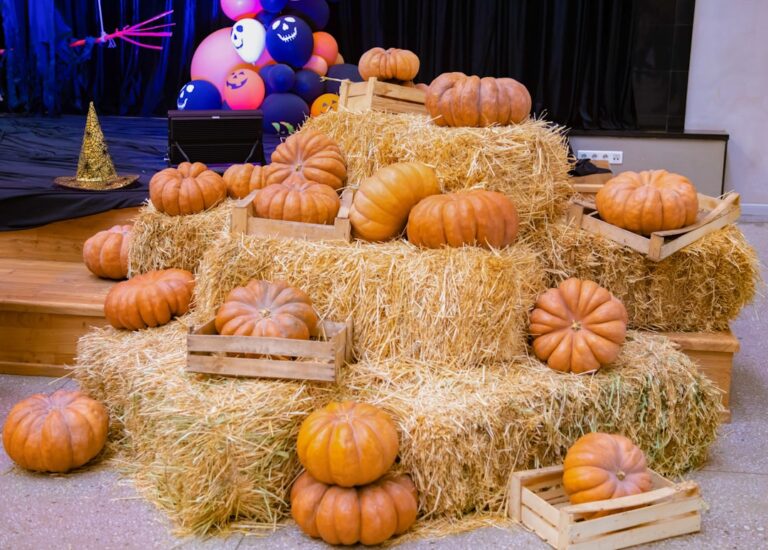Thanksgiving Trivia: A Festive Exploration of History, Culture, and Fun In the US, Thanksgiving is a beloved holiday that is marked by feasts, family get-togethers, & an attitude of thankfulness. Why not engage your loved ones with some fascinating trivia as you get ready for this festive occasion? This article will walk you through many facets of Thanksgiving, from its historical origins to interesting facts about traditional foods. Prepare to wow your friends and family with your newly acquired knowledge! Need Weekly Trivia Questions? https://cheaptrivia.com/products/weekly-trivia-subscription-service
Key Takeaways
- The first Thanksgiving was celebrated in 1621 by the Pilgrims and the Wampanoag tribe, and it lasted for three days.
- Turkeys were not part of the first Thanksgiving feast, and it is believed that the Pilgrims and Native Americans ate deer, ducks, geese, and seafood.
- The Macy’s Thanksgiving Day Parade started in 1924 and was originally called the “Macy’s Christmas Parade.”
- The first Thanksgiving proclamation was made by President George Washington in 1789, and it was not until 1863 that President Abraham Lincoln declared Thanksgiving a national holiday.
- Thanksgiving is celebrated in different ways around the world, with similar themes of gratitude and harvest, but with unique traditions and dishes in each culture.
Thanksgiving’s history dates back to the early 17th century, when English settlers arrived in North America. The Wampanoag were invited to join the Pilgrims at a harvest feast in 1621 to commemorate their bountiful crop yield. Although this event was not known as the first Thanksgiving at the time, it is frequently considered to be so. A range of foods, games, & activities were part of the three-day event. Examine how Thanksgiving has changed over time as you learn more about its history.
The final Thursday in November was declared a day of gratitude when President Abraham Lincoln declared Thanksgiving a national holiday in 1863. Sarah Josepha Hale, a well-known author who advocated for the holiday for almost 17 years, had an impact on this decision. You can increase your knowledge of Thanksgiving trivia and put the significance of the holiday in context by being aware of these historical subtleties. A custom that dates back to the 1800s. It’s interesting to note that turkey was first served on this day in the early 1800s, when it was a common choice for festive meals.
Speed Demons is a fact about Turkey. Another interesting fact is that wild turkeys can fly short distances at about 55 miles per hour and can run up to 20 to 25 miles per hour. Make an impression on your visitors.
In addition to being a tasty meal, turkeys are also a fascinating topic for trivia discussions because of these intriguing qualities. The Pilgrims faced many difficulties on their journey to America, & their first winter was especially difficult. Use these interesting turkey facts to wow your guests this Thanksgiving as you gather around the table. Of the original group, only roughly half made it to the 1621 harvest. The original Thanksgiving celebration, which was more than just a feast but also a time of survival & thankfulness, gains depth from this background.
Sharing food and resources was a major example of cross-cultural cooperation between the Wampanoag and the Pilgrims. Think about the Pilgrims’ reasons for leaving England as you research their trivia. In order to avoid being persecuted for their beliefs, many sought religious freedom. This pursuit of freedom is central to American history & enriches the story of Thanksgiving.
Having meaningful conversations about faith, resiliency, and community can result from discussing these early settlers. Thanksgiving offers a chance to honor Native American heritage in addition to commemorating Pilgrim history. Throughout the Pilgrims’ first year in America, the Wampanoag people were essential to their survival. They gave them instruction in fundamental farming methods, like fertilizing corn with fish, which greatly increased crop yields.
Think about talking about the various cultures & traditions of Indigenous peoples across North America as you share facts about their contributions. The distinct traditions and histories of every tribe contribute to the richness of American culture. By recognizing these contributions at Thanksgiving, you can cultivate a greater respect and understanding for the original occupants of the land.
Many nations have their own harvest festivals and customs that honor thankfulness, even though Thanksgiving is largely connected to American culture. For example, Thanksgiving is observed in Canada on the second Monday in October and features similar themes of feasting & thankfulness. In September or October, the Germans celebrate Erntedankfest, or the Harvest Festival, where they express gratitude for the harvest through food, dancing, and music. Investigating customs from around the world can give your Thanksgiving trivia game a fun new twist. Some cultures may include special foods or customs in their festivities, as you may learn. For example, on November 23rd, Japan observes Kinrō Kansha no Hi, or Labor Thanksgiving Day, with an emphasis on appreciation for work and output.
By exchanging these global viewpoints, you can increase your comprehension of appreciation and intercultural community. The first few years. This parade, which began in 1924, has grown to be a cherished custom with the participation of numerous artists, floats, & enormous balloons.
Did you know that, rather than balloons, the first parade featured live animals from the Central Park Zoo? The parade’s evolution. Until 1927, the first enormous balloon did not appear. Millions of people now watch the parade in person and on television thanks to its significant evolution over the years. The event is dynamic and reflects modern society, with new floats and balloons inspired by popular culture each year.
Sharing the Fun Facts. Sharing these interesting Macy’s Parade facts can help build anticipation and excitement as you get ready for your own Thanksgiving celebrations. Officially, the United States has recognized Thanksgiving. S. presidents since the 1863 proclamation by Abraham Lincoln.
That date was moved to the fourth Thursday in November 1939, though, only during the administration of Franklin D. Roosevelt. In an effort to prolong the holiday shopping season during the Great Depression, this decision was met with strong opposition from those who favored the more conventional date. Think about how each president has influenced the meaning of Thanksgiving over time as you examine presidential proclamations pertaining to the holiday.
These statements shed light on America’s changing relationship with Thanksgiving, from Lincoln’s call for unity during the Civil War to contemporary expressions of thankfulness & introspection. Many television shows & films that capture the essence of Thanksgiving have been produced. For many families, classics like “A Charlie Brown Thanksgiving” & “Planes, Trains, and Automobiles” have become annual favorites. Did you know that “A Charlie Brown Thanksgiving” debuted in 1973? Its themes of thankfulness and friendship still have an impact on viewers today. Playing Thanksgiving-themed entertainment trivia can spark interesting conversations about beloved movies or special moments from previous Thanksgiving celebrations.
By sharing these cinematic experiences, you can strengthen your family’s bond with the holiday and make enduring memories. You might even find new suggestions for holiday TV. Many cultures have similar celebrations based on agricultural practices, so the idea of giving thanks for a plentiful harvest is not exclusive to America. To honor Demeter, the goddess of fertility and grain, for instance, the ancient Greeks celebrated a festival known as Thesmophoria.
In a similar vein, feasts honoring Osiris were used by the ancient Egyptians to celebrate their harvest. You can appreciate Thanksgiving as a time of thanks for nature’s abundance more if you are aware of these historical precedents. Consider how these customs have impacted contemporary celebrations and promoted a sense of community among people throughout history as you share trivia about harvest celebrations from around the globe.
Think about introducing lighthearted trivia questions into your conversations as you all eat Thanksgiving together. For example, find out from your guests which state produces the most turkeys or which year was the first Macy’s Parade. These interesting facts can be used as conversation starters to get everyone talking about their own Thanksgiving-related experiences.
Also, you could investigate odd customs or peculiar foods that families like to eat during their festivities. Talking about these unusual traditions, which range from deep-fried turkey to pumpkin pie variations, can make your guests laugh & bond. Your Thanksgiving get-together will be even more special if you foster an environment of enjoyment and participation. Last but not least, Thanksgiving would not be the same without mentioning the traditional fare!
In addition to turkey, many families relish cranberry sauce, mashed potatoes, pumpkin pie, and stuffing. Pumpkin pie has been around since colonial times, & early recipes frequently called for ingredients like ginger & nutmeg, which are still common today. You can find new culinary adventures to try during your own Thanksgiving celebration by researching trivia about traditional recipes.
You may even think about sharing family recipes that have been handed down through the years or trying out a new dish. By making food a central component of Thanksgiving customs, you give your family members a chance to bond and express gratitude. In conclusion, playing Thanksgiving trivia can help you learn more about the tradition’s background and cultural significance while also providing a fun way to celebrate this beloved holiday. These insights can improve your get-togethers & help you make enduring memories with loved ones, whether you’re learning interesting facts about turkeys or studying diverse customs.
So, this year, get together around the table with information in hand—your mastery of trivia might end up being the high point of your Thanksgiving festivities!
If you’re looking to impress your guests with some Thanksgiving trivia, you may want to check out this article on 12 Thanksgiving Facts You Didn’t Know to Impress Your Customers. This article provides interesting and lesser-known facts about the holiday that are sure to delight and entertain your guests. It’s a great way to add a fun and educational element to your Thanksgiving celebration.
GRAB YOUR FREE HOLIDAY TRIVIA PACKS
FAQs
What is Thanksgiving trivia?
Thanksgiving trivia is a game or activity where participants answer questions related to the history, traditions, and facts about Thanksgiving. It is often played during Thanksgiving gatherings to entertain and engage guests.
How can I incorporate Thanksgiving trivia into my gathering?
You can incorporate Thanksgiving trivia into your gathering by creating trivia rounds with questions related to Thanksgiving history, traditions, food, and fun facts. You can organize it as a group game or have it available for guests to play individually.
What are some examples of Thanksgiving trivia questions?
Examples of Thanksgiving trivia questions include: “Which president made Thanksgiving a national holiday in the United States?”, “What year was the first Thanksgiving celebrated?”, “What is the traditional meat served at Thanksgiving dinner?”, and “What is the significance of the cornucopia in Thanksgiving symbolism?”
How can I make Thanksgiving trivia rounds engaging for my guests?
You can make Thanksgiving trivia rounds engaging for your guests by including a mix of easy and challenging questions, incorporating interactive elements such as visual aids or props, and offering small prizes for the winners. You can also encourage friendly competition and teamwork among the participants.
Where can I find Thanksgiving trivia questions and resources?
You can find Thanksgiving trivia questions and resources online through websites, blogs, and social media platforms dedicated to Thanksgiving celebrations. You can also create your own trivia questions based on your knowledge of Thanksgiving history and traditions.

